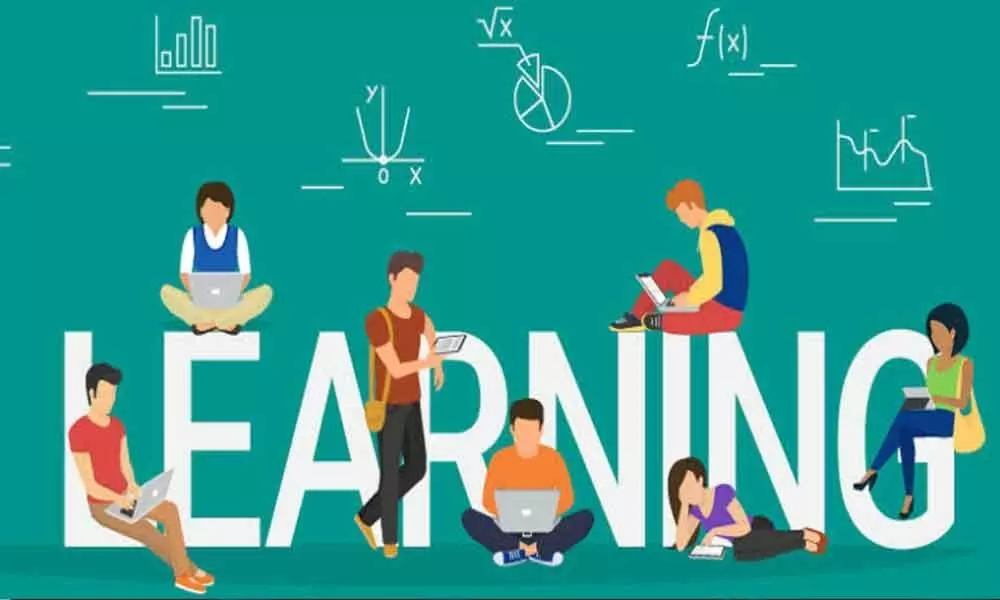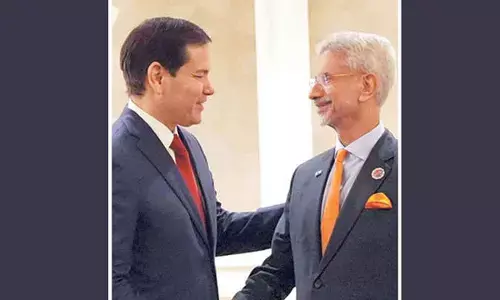The 4Cs in student-centered learning approach

To upskill is to survive in the digital and smart ecosystem. With ICTs broadening horizons, learning must have a student-centric approach, to enhance and enable the youth of India further.
To upskill is to survive in the digital and smart ecosystem. With ICTs broadening horizons, learning must have a student-centric approach, to enhance and enable the youth of India further.
Today, information and communications technology (ICTs) is increasingly being employed in classrooms across the globe. Owing to this, educators face growing challenges as they teach a very "different" and "wireless" generation of students who use technology which is evolving every day.
Consequently, the need for active learners who have acquired the skills of problem-solving, independent thinking and autonomous learning, as well as the ability to work cooperatively has increased dramatically. Therefore, teaching methods, pedagogies, and educational goals must be directed at producing individuals who have faith in their abilities and who will work at developing their capabilities throughout their lives. It is important to note that in the 21st century, learning is not a "one size fits all" approach.
This era has become more about developing skills than just absorbing information. The most important skills are self-development, which includes knowing one's strengths and weaknesses and finding ways to mitigate gaps in personal development. This can be achieved by implementing student-centered learning practices, thereby letting students take charge of their learning. This method prepares individuals to take responsibility and makes them independent. It helps develop the characteristics of lifelong learning – motivation, self-evaluation, time management, and skills to access information.
Necessary skill sets for 21st-century learners Twenty-first-century skills comprise the 4 Cs: critical thinking, creativity, communication and collaboration. Let us examine the 4Cs in-depth, to recognize why these skills are important for the success of students in the future.
Critical thinking: With rapid changes happening in every sphere of our lives, students must be taught how to adapt, analyze and solve problems under any circumstances. We need to mold their minds in such a way that they develop the necessary problem-solving skills which will help them make the right decisions when faced with challenging situations.
Creativity: Creativity is not only about creating something original from scratch but also about taking something that already exists and creating something new and innovative from it. According to philosophers Linda Elder and Richard Paul, sound thinking requires great imagination and high intellectual standards. Creativity allows students to think out-of-the-box and offer solutions to problems in an unconventional manner.
Communication: Given the enormous number of situations that require communication, students must be aware of how to communicate, interpret and analyze the information they receive, and at the same time convey the information in the best way possible, to derive the expected results.
Collaboration: Our world is no more a world of individuals where a one-man army can do wonders. Even in interviews for university admissions or a job, group discussions are mandatory to enable the stakeholders to evaluate the collaboration and communication skills of the person applying for the seat or position. Therefore, these skills must be developed at a young age to ensure that students perform well and are suitably adapted to deal with situations that require a group effort. Unfortunately, conventional teacher-centred learning methods are not capable of equipping learners with these necessary skills.
Significance of student-centered learning
Student-centered learning is an approach in which students influence the content, activities, materials, and pace of learning. This learning model places the students at the center of the learning process. The instructor provides students with opportunities to learn independently, and from one another, and facilitates the development of skills that they need to do so effectively.
According to Collins and O'Brien, the approach includes such techniques as substituting active learning experiences for lectures, assigning open-ended problems and problems requiring critical or creative thinking that cannot be solved by following text examples, involving students in simulations and role-plays, and using self-paced learning along with collaborative group learning. Properly implemented learner-centered education can lead to increased motivation to learn, greater retention of knowledge, deeper understanding, and more positive attitudes towards the subjects being taught.
The core factors involved in student-centered learning are:
• Co-planning, which requires a review of learning goals and competencies to chalk out the best methods of learning for each student.
• Personalized learning plan development, which makes use of the students' individual preferences, ability and knowledge level to draw learning paths for them, aided by digital or human resources.
• Ongoing feedback, which consists of multiple methods of assessment, such as open-ended assignments, critical-thinking exercises, simulation and problem-solving activities, and the evaluation of learning progress.
• Review and revision based on feedback.
• Moving on to a higher competency level.
These elements foster responsibility and independence in learners, leading them to develop skills such as inquiry, problem solving and communication, which are needed in the 21st century.
















